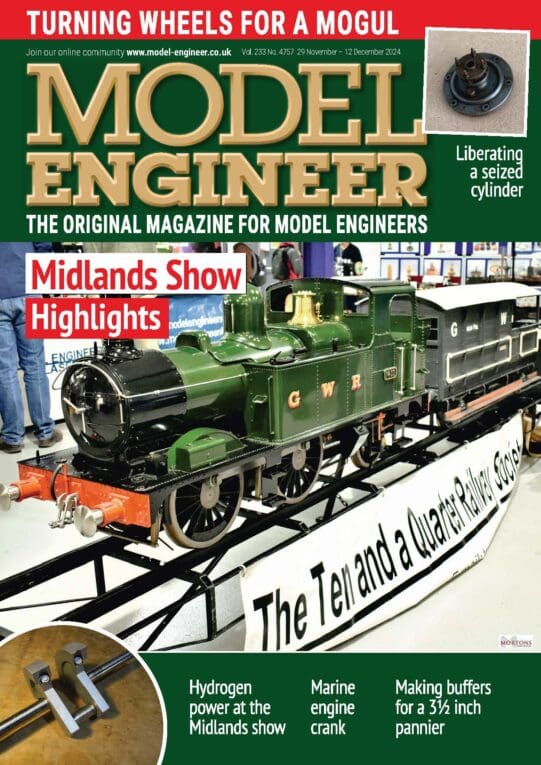Quality Assured Copper Boilers
Quality Assured Copper Boilers
- This topic has 12 replies, 9 voices, and was last updated 24 March 2013 at 11:29 by
Sub Mandrel.
Viewing 13 posts - 1 through 13 (of 13 total)
Viewing 13 posts - 1 through 13 (of 13 total)
- Please log in to reply to this topic. Registering is free and easy using the links on the menu at the top of this page.
Latest Replies
Viewing 25 topics - 1 through 25 (of 25 total)
-
- Topic
- Voices
- Last Post
Viewing 25 topics - 1 through 25 (of 25 total)
Latest Issues
Newsletter Sign-up
Latest Replies
- Model Subjects that Inspire, and to Aspire to..
- CL500m (it was free!)
- Lathe vibration in workshop
- Chester Super Lux advice
- What is (Traditional) Model Engineering?
- Dismantling the Pratt Burnerd Myford 3 jaw chuck
- Beaverpal Mill strip for moving/disposal? Advice please
- Wiring a contactor
- Building Wilding’s Tower Clock
- Jaguar [oh dear]





